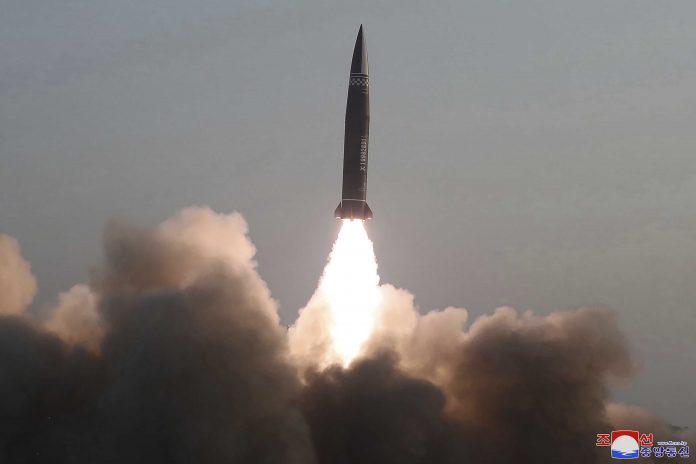
By MARI YAMAGUCHI
Associated Press
TOKYO (AP) — Japan extended its own sanctions against North Korea for another two years as Pyongyang continues to develop its nuclear weapons without any progress in resolving the abductions of Japanese nationals.
Japan bans all trade between the countries and prohibits North Korean-registered ships from entering its ports, except for humanitarian purposes. It also bans flights between the countries.
Japan also abides by U.N. sanctions against North Korea’s nuclear and missile programs. They include an arms trade ban, a freeze of North Korean assets, a ban on people exchanges and restrictions on education and training.
Japan’s Chief Cabinet Secretary Katsunobu Kato announced Tuesday the Cabinet had decided to extend the sanctions, which were to expire on April 13.
North Korea test-fired two ballistic missiles on March 25 for the first time in about a year, which Japan has condemned as a violation of U.N. Security Council resolutions. Japan, the United States and South Korea have called for full implementation of the U.N. sanctions and for ensuring international efforts to denuclearize North Korea.
In 2002, North Korea admitted to kidnapping 13 Japanese nationals in the 1970s and ’80s to train spies in Japanese language and culture. Five of them were allowed to return to Japan later that year, and Pyongyang says the others had died or never entered the North.
Japan believes more people may have been abducted and that many may still be alive. Questions over their fate, along with North Korea’s nuclear and missile development, have kept relations frozen between the countries that do not have diplomatic ties.
Prime Minister Yoshihide Suga has made resolving the abduction issue a high priority for his administration and has said he is open to meet with North Korean leader Kim Jong Un for talks without setting any preconditions.
Tokyo began limited sanctions against North Korea in 2006 and has since extended and expanded them.
















